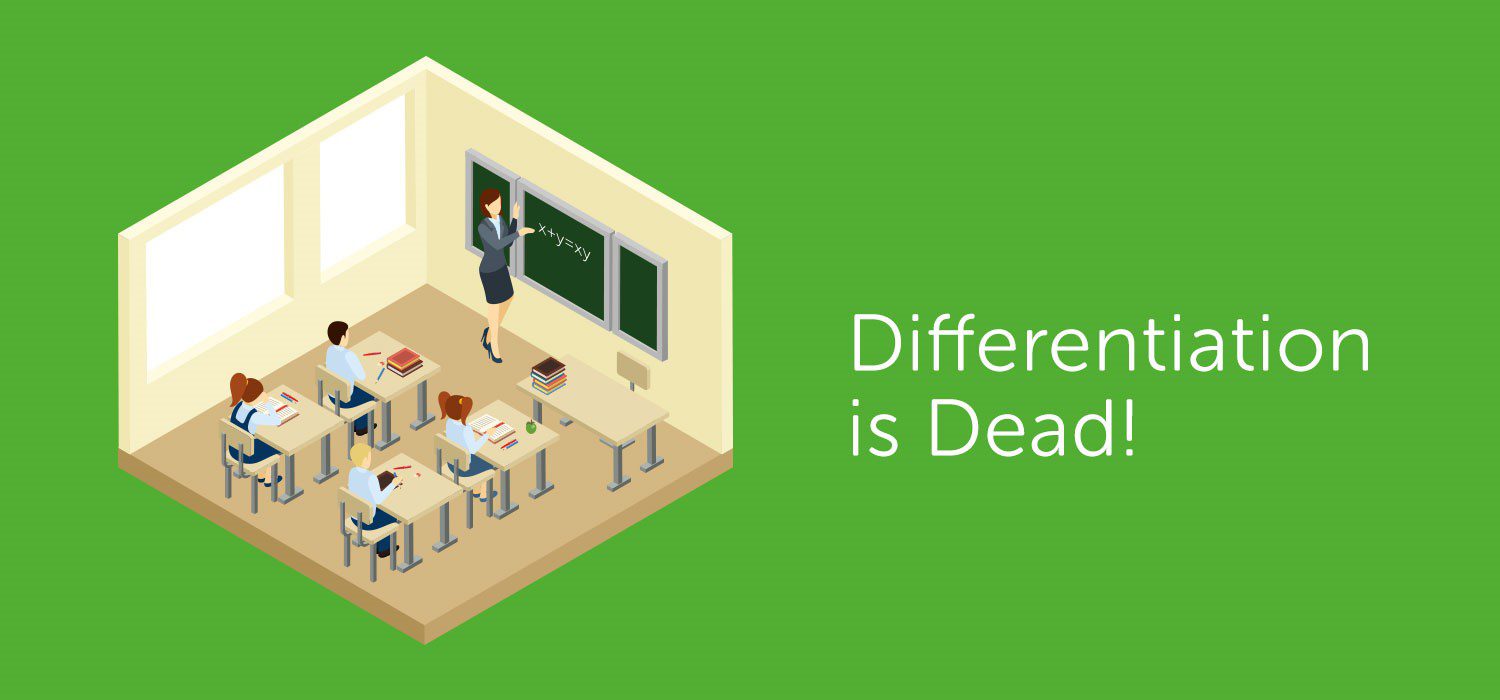Differentiation is Dead!
Differentiation is dead, controversial? Read on…
I was an NQT in 1993. I can still recall the mixture of emotions in the last week of the summer holidays, preparing to launch into my teaching career proper. The usual format was to spend the day excitedly cutting out giant letters for display and writing names on books/pegs/trays etc. only to be followed by a night of waking up in a cold sweat, having dreamt – yet again – that I’d lost control of the class. Except, one night I slept really well; I was so happy because I’d had the brilliant idea to call my higher-ability group ‘Smarties’! Of course, this meant calling my middle ability group ‘Skittles’ and my low ability group ‘M&Ms’. By definition, I had already told two of my groups that I didn’t consider them ‘smart’. I shudder to think of the long-term damage being a member of ‘The M&Ms Group’ had on those poor children (now aged 34), but that was the way of it at that time. Every primary teacher had fixed ability groups, notwithstanding the occasional battle for individual promotion/relegation from group to group.
Differentiation
If we take differentiation to be ‘fixed in-class ability groupings’ for a subject (or even a domain within a subject), then the education research delivers a double whammy! Not only are the outcomes associated with it not that impressive, but there is the further setback that it involves a considerable workload for class teachers. We can think simplistically of teacher workload being either ‘good workload’ (it has a huge impact on outcomes) or ‘bad workload’ (it has little or no impact on outcomes). Reducing the ‘bad’ comes before reducing the ‘good’, and, even then, reducing the ‘good’ has to happen without selling out to standards.
In-class differentiation, through providing differentiated teaching, activities or resources, has generally not been shown to have much impact on pupils’ attainment
Ofsted
But what are the alternatives? Whole-class teaching regardless of ability is one option, although, clearly, in some specific domains (such as within the basic skills of primary maths) the content is so sequential that this approach is obviously going to lead to many students receiving input that is not targeted at their next steps. In this scenario, the cognitive load provided will not be suitable for adequate progress). Not surprisingly, where studies have shown differentiation to be more impactive, it has often been in comparison to whole-class mixed-ability teaching and not an alternative approach (see The EEF Toolkit). But what might that alternative approach be? The answer is ‘adaptive teaching’.
Adaptive Teaching
Adaptive teaching has no fixed ability groupings, no preconceptions about individuals, and no labelling of people. Instead, it invites the teacher to look at each and every situation in a bespoke manner; considering the curriculum learning journey they intend to deliver on, the actual learners that will be in front of them (and any surrounding issues, such as students with relevant learning difficulties) and then to map the two together. The adaptive teacher is asking, ‘Where are these students up to on this learning journey?’ and only then asks, ‘How can I respond to best meet their needs?’. The answer to ‘How do I respond?’ is invariably to adapt teaching accordingly. Initially, this can seem like it is much the same as differentiation. After all, adaptive teaching is leading to providing differing inputs; true, and in that much broader sense of the word, then differentiation is not dead. However, rather than just seeing ‘adaptive teaching’ as a matter of semantics, or even just a simple case of abolishing fixed in-class ability groupings, I would argue that it is through exploring ‘adaptive teaching’ that a school can journey much further with their curriculum design, their quality of teaching, and, crucially, the joining of the two. If you would like to read more about what this exploring might look like, then read on to the post, ‘Adaptive teaching is Alive!’.

